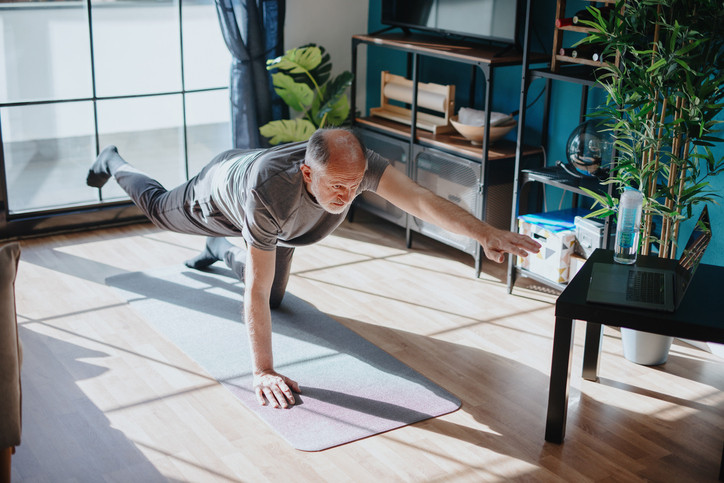Body and brain are crucial to good balance

One thing is for certain: Balance can't be taken for granted past a certain age; it must be maintained — both in mind and body.
If you've ever seen a friend or family member fall and suffer a major fracture, you know it's serious business. It seems obvious that general physical fitness and targeted exercises can improve balance and prevent falls. But you might be surprised to learn that staying mentally active to maintain cognitive fitness also plays a big role.
A sharp mind helps you to think — and stay — on your feet.
"We need careful planning of our movements, decision making, reaction time, and attention," says Brad Manor, Ph.D., an instructor in medicine at Harvard Medical School and director of the Mobility and Falls Program, Hebrew SeniorLife of Boston. "Staying mentally active is very important to avoiding falls."
How do we keep our balance? The inner ear, which senses head motions, is an important part of the intricate system of balance. So is the body's somatosensory system, which relays the feeling of the ground beneath your feet. And, of course, vision tips you off to obstacles around you. The brain takes in all this information, plans our movements, and carries them out. "Balance is a complex system," Manor says. "Especially as we get older, cognition becomes a big part of it." Keeping the mind fit keeps us mentally sharp and helps us to navigate the ever-shifting obstacle course of the world.
Manor and his fellow researchers are studying the balance benefits of tai chi, a form of exercise that involves moving gently through a series of poses. Tai chi improves balance because it works both the mind and body. "Tai chi involves planned movements," Manor explains. "It emphasizes being aware of the movements and how they feel." Classes in tai chi and a related exercise system, qigong, are widely available. You could also perform daily "standing balance" exercises. These include repeated moves that involve standing on one leg while gently lifting the other.
Maintaining mental fitness, remaining physically active, and practicing tai chi, qigong, yoga, or some other mind-body exercise can help you keep your balance and avoid stumbling. But if you do lose your balance, recovering requires muscle power. Power is the ability to exert force quickly — the kind of conditioning an experienced ballroom dancer uses to "push off" during quick steps and turns. Rapid, forceful exercises like hopping and side stepping help to build power. For beginners, classes or trainers are valuable to learn how to exercise for power safely.
Image: Anchiy/Getty Images
Disclaimer:
As a service to our readers, Harvard Health Publishing provides access to our library of archived content. Please note the date of last review or update on all articles.
No content on this site, regardless of date, should ever be used as a substitute for direct medical advice from your doctor or other qualified clinician.












